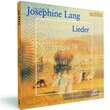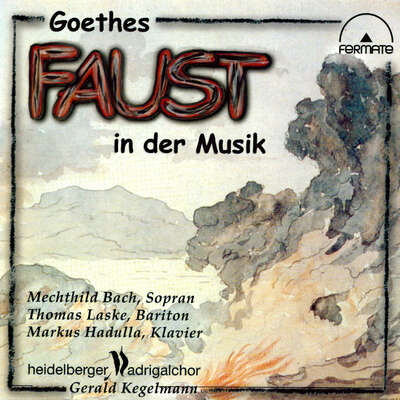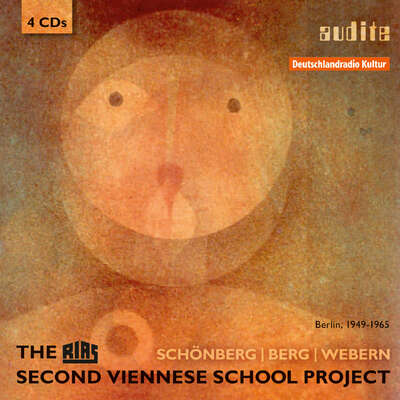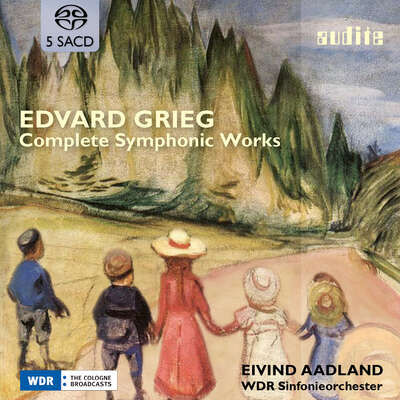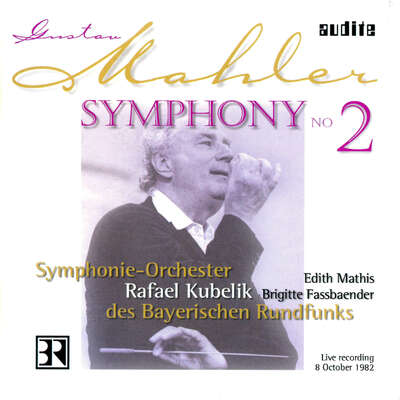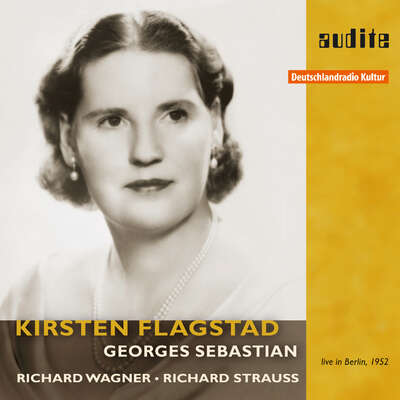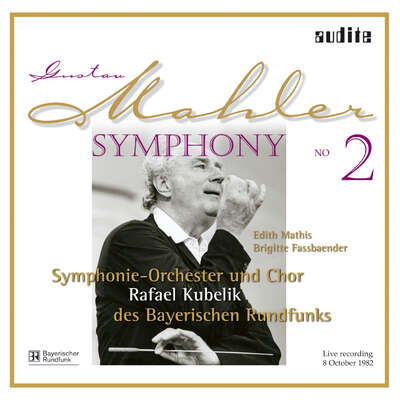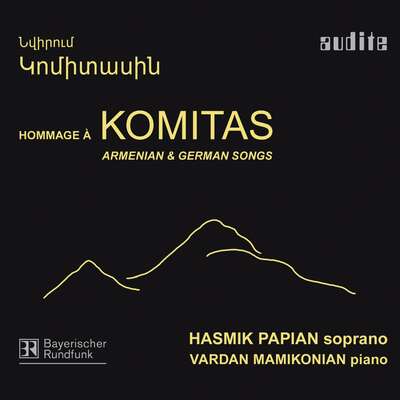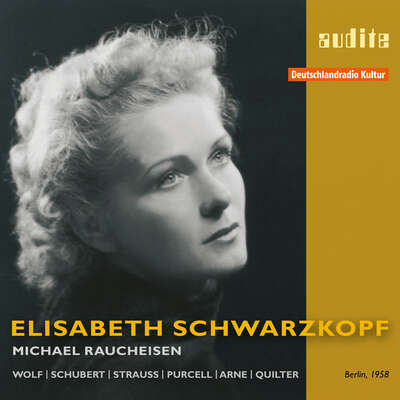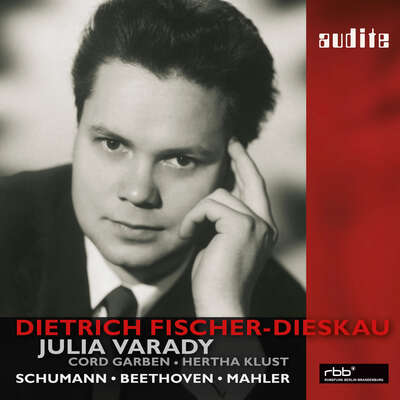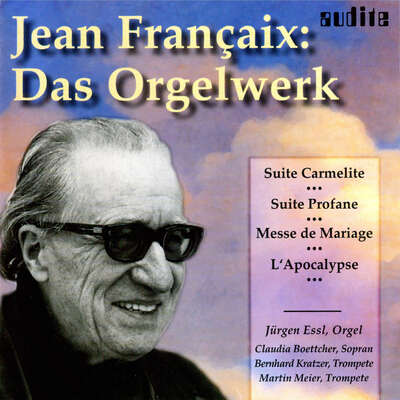
Already in her early youth, Josephine Lang was able to fill renowned contemporaries with enthusiasm for her abilities as a singer and composer. The young Felix Mendelssohn was present at a private salon in Munich when the fifteen-year-old performed songs of her own. He was so impressed that he...more
"Erfreulich, dass auch die beiden Interpretinnen dafür weit mehr zu bieten haben als missionarischen Eifer - ihnen ist diese Musik spürbar eine Herzensangelegenheit. Und das mit Recht." (Fono Forum)
Details
| Josephine Lang: Lieder | |
| article number: | 97.472 |
|---|---|
| EAN barcode: | 4022143974723 |
| price group: | BCA |
| release date: | 1. January 2002 |
| total time: | 58 min. |
Informationen
Already in her early youth, Josephine Lang was able to fill renowned contemporaries with enthusiasm for her abilities as a singer and composer. The young Felix Mendelssohn was present at a private salon in Munich when the fifteen-year-old performed songs of her own. He was so impressed that he later gave her instruction in composition free of charge. In the following period, Josephine Lang repeatedly came into contact with Mendelssohn, his sister Fanny Hensel and their composition teacher Carl Friedrich Zelter, which of course influenced her musical development very positively. Mendelssohn confirmed his judgement of the composer, today largely unknown, in an appeal to her husband decades after that first encounter:
"... for Heaven's sake, keep her composing diligently! ...how tiny the masterworks of some famous names seem next to this fresh music."
Josephine Lang wrote almost exclusively Lieder, of which the most important are collected in this new recording - almost forgotten treasures whose rediscovery is an incalculable gain for the musical world.
Reviews
France Musique | émission du mercredi 25 mars 2009 | Anne-Charlotte Rémond | March 25, 2009 BROADCAST Histoire des... compositrices
Sendebeleg siehe PDF!Mehr lesen
Musica | N° 152 | Giorgio De Martino | March 1, 2004
L'interpretazione è di egregia fattura. Forse la grana vocale di Heike Hallaschka non è «di suo» particolarmente seducente, ma il rapporto voce-strumento è ben calibrato, entrambe le artiste sanno «cantare» ed ascoltarsi, sa spirare. E più le ascoltiamc sembrano attendibili.Mehr lesen
Classica-Répertoire | mars 2004 | Jean-Jacques Groleau | March 1, 2004
Il s’agit là d’une véritable première discographique. DepuisMehr lesen
Main-Echo | Nr. 229/2003 | August 26, 2003
Lieder Josephine Langs (1815 bis 1880), die oft nur wenig beachtet wurden,Mehr lesen
Bote vom Unter-Main | Nr. 229/2003 | August 26, 2003
Lieder Josephine Langs (1815 bis 1880), die oft nur wenig beachtet wurden,Mehr lesen
American Record Guide | 3/2003 | John Boyer | May 1, 2003
Josephine Lang (1815-80) suffered the typical life of a 19th Century woman composer: a domineering, jealous father, an unsupportive famlly, and moreMehr lesen
Lang appears to have concentrated most of her musical efforts on lieder, rarely attempting anything on a larger scale. Only a few composers of piano miniatures and songs have established themselves in the repertory, since there is an expectation that a real composer must eventually attempt something greater. But there's a lot to be said for sticking to what one does well, and Lang, in her 150 published lieder, shows us that she was a very able composer. Mendelssohn waxed rhapsodic over her songs, and it is no wonder: she sounds exactly like him. In song after song, the spirit of Mendelssohn is never far. Grace, poise, elegance, beauty, and simplicity are her hallmarks. But Lang is no mere imitator of an established model. As a composer of songs, she's not just like Mendelssohn, she's often (dare I say it?) better Lang's songs have an extra something that all but the best of Mendelssohn's lack, making the elder composer's efforts sound like the imitations. With respect to her exact contemporaries Robert Franz and Robert Volkmann, she is consistently better. If she has a deficiency, it is that she never developed with time. Songs written in 1870 sound like those from 1840.
Serving this good music is soprano Heike Hallaschka's delightful singing. Confident and controlled, her bright pretty voice is ideally suited to the material. She also invests each song with subtle characterization, wisely avoiding the temptation to let them sing themselves. The engineers have captured the proceedings in ideal sound: realistic balance between singer and piano, both surrounded with just enough space to avoid a sense of being too close, but not with so much as to sound too reverberant.
An intelligent essay, reasonably well translated, and complete texts round out the release. Only the absence of translations for the texts mars the impression of this otherwise wholly effective and easily recommendable recording.
Viva Voce | Frühling 2003 – No. 64 | March 1, 2003
Die Pianistin Heidi Kommerell ist für ihr Engagement in SachenMehr lesen
Journal of the Int. Alliance of Women in Music | February 2003 | Dr. Suzanne Summerville | February 1, 2003
Hardly less impressive is the second of the CDs entitled Fee’n-reigenMehr lesen
Crescendo | 5/2002 | JM | October 1, 2002
... Da gehen von den Kompositionen der Romantikerin Josephine LangMehr lesen
Fono Forum | 10/2002 | Christian Wildhagen | October 1, 2002 Küche statt Kunst
"Wie sehen die Meisterwerke so berühmter Namen so winzig aus gegen diese frische Musik!" Hingerissen schwärmte Mendelssohn von den Liedern derMehr lesen
Stuttgarter Zeitung | 193 | jha | August 21, 2002
Lieder von Josephine Lang
Verkümmertes Wunderkind
Die ganze Bandbreite romantischer Liedkunst ist hier zu erleben: leiseMehr lesen
